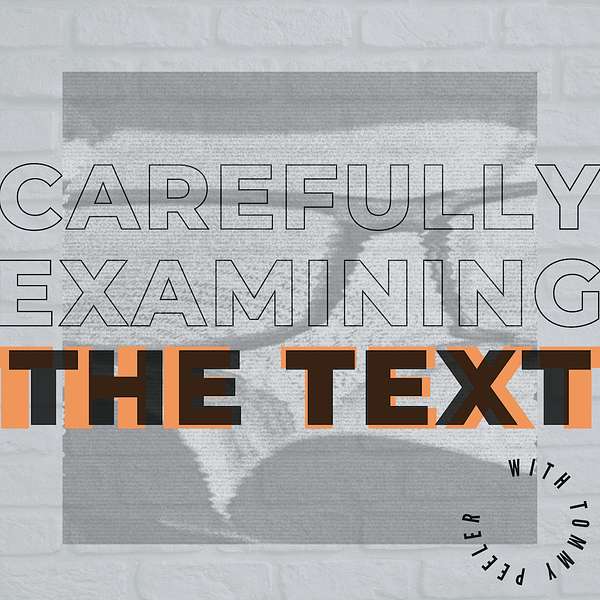
Carefully Examining the Text
Carefully Examining the Text
Psalm 113
“This is the first of six psalms collectively known as the hallel that are recited in synagogues during the festival service” Alter, 403. Psalms 113-118 are the Egyptian Hallel. “Psalms 113-114 are sung before the Passover meal and Psalms 115-118 after it. These psalms are also sung at the feast of Pentecost, Tabernacles, and Dedication (Hanakuah, or Lights)” Miller, 373. These psalms were “used at all major festivals but especially the beginning and conclusion of the Passover” McCann, 1138. Sometimes we stress Passover for that was the time at which Jesus sang these songs: Matthew 26:30 and Mark 14:26.
It is “also an appropriate culmination to Psalms 111-112. Like Psalm 111, it articulates God’s sovereignty (see below on vv. 1-4; see also 111:2-6, esp. v. 4, which recalls the exodus) and it offers an especially appropriate response to the exclamation of 111:9c (See ‘name’ in 111:9c; 113:1-3). Furthermore, like Psalms 111-112, Psalm 113 asserts that God’s power is manifested in gracious, compassionate provision for the poor (See Ps. 111:4-5a, 112:9a; 113:7-9)” McCann, 1138.
Psalm 113 is an appropriate introduction to Psalms 113-118. Of the Psalms known as the Egyptian Hallel only the second one, Psalm 114, “speaks directly of the Exodus” Kidner, 401.
113:1-3 Praise the LORD- all places and at all times
113:4-6 The LORD is exalted above all
113:7-9 The LORD lifts the needy to sit with princes
Jesus and Psalm 113
“There was more relevance in these psalms to the Exodus- the greater Exodus- than could be guessed in Old Testament times” Kidner, 401.
“Verses 7 and 8 anticipate the great downward and upward sweep of the gospel, which was to go even deeper and higher than the dust and the throne of princes: from the grave to the throne of God (Eph. 2:5f)” Kidner, 402. Psalm 113 speaks only of lifting the poor but Luke 1:52 also speaks of God bringing down the mighty.
“The psalm gives hope to the socially vulnerable, the poor and childless woman. In terms of the latter, the Old Testament narratives are full of stories of God opening the wombs of barren women: Sarah (Gen. 11:30; 21:1-5), Rebekah (25:21), Rachel (30:22), Samson’s mother (Judges 13:2-3), Hannah (I Sam. 1:2), the Shunnamite (II Kings 4:16), Elizabeth (Luke 1:7). Of these, the story of Hannah deserves special mention, because, after she gives birth to Samuel, she praises God in a song that shares a number of elements with Psalm 113 (I Sam. 2:1-10)” Longman, 390.
Mary’s song celebrates God lifting up the humble- Luke 1:46-56. “Hannah’s joy became all Israel’s; Sarah’s become the world’s. And the song of Hannah was to be outshone one day by the Magnificat” Kinder, 402. “The story of God’s care for Hannah becomes a model for God’s care for Israel, memorialized in the Passover celebration” NICOT, 849.
Jesus sang the Egyptian Hallel in Matthew 26:30 and Mark 14:26.
Vs. 6 anticipate Philippians 2:6-8 “What amazing condescension was it for the Son of God to come from heaven to earth, and take our nature upon him, that He might seek and save those that are lost” Matthew Henry’s Concise Commentary, 547. A noun is used in the LXX of Psalm 113:6 but the corresponding verb in Greek is used in Philippians 2:8.
I Corinthians 1:18-31 God humbles the mighty and exalts the lowly through the gospel.
Matthew 23:12; Luke 14:11; 18:14 Humble himself will be exalted and exalt himself will be humbled.
Matthew 19:30; 20:16; Luke 13:30 The first will be last and the last first.
Ephesians 1:20; 2:6 God raised